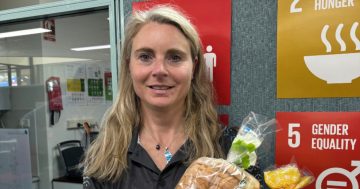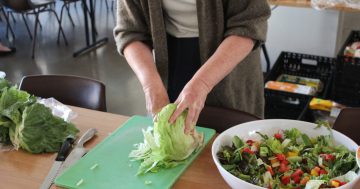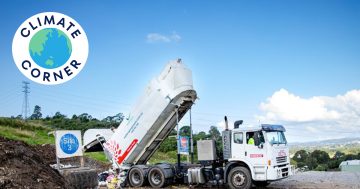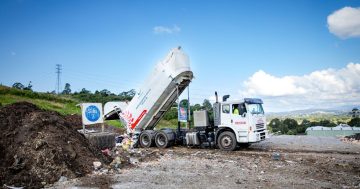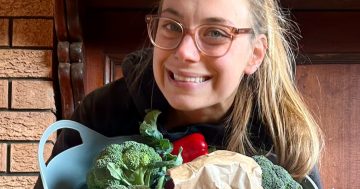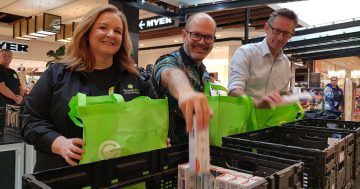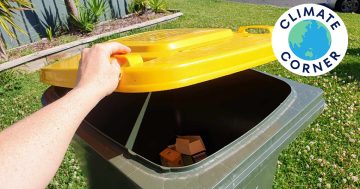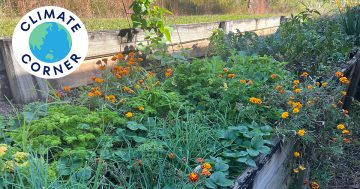
Researchers investigated the waste small cafes were producing. Photo: Sarah Menegon.
Cafes are being urged to help combat food waste, with a new report revealing the simple steps that small businesses can take to reduce their impact and even save them thousands of dollars.
Illawarra researcher Sam Quirk from RMIT co-authored the study for End Food Waste Australia which focused on the industry’s impact on the major environmental and economic issue.
“Food waste is currently costing the Australian economy $36.6 billion per annum and the food service and hospitality sector counts for approximately 16 per cent of this,” Sam said.
“Post COVID it’s been a pretty hard time for the industry particularly in this cost-of-living crisis as well any sort of ways that businesses can look at reducing costs is a good reason why food waste should be addressed.”
The study found that more than 60 per cent of what was in the general waste bin at small and medium cafes was actually food and not just stems and skins.
“You’re throwing out something that you’ve already paid for in the front end,” Sam said. “Also the weight of food waste going into your general waste bin can be costing businesses a bit of money on waste service costs.”
The first step in solving the problem was for businesses to identify just how much food waste they were dealing with by separating it from other rubbish.
“You can only manage what you measure,” Sam said.
“A lot of the time, when food waste is just being put into the general waste bin it can kind of get lost because it is mixed in with the other waste and it is hard to make that delineation.”
Excess waste was identified in every step of the process, from the supply chain to preparation, the way it was stored and what was scraped off customers’ plates at the end of meals.

Sam Quirk is passionate about solving the food waste problem in the Illawarra and around the country. Photo: Supplied.
Sam said businesses should better utilise each ingredient “from root to tip or nose to tail”, offer sides like chips, bread or salad as an optional extra rather than an inclusion and downsize menus to stop large amounts of food being stored unnecessarily.
“Focusing on fewer menu offerings and making stock control to stop that spoiling side of things because it is a lot easier to manage things if there is less of it.
“And try and look at your menu as what ingredients can I use across multiple different dishes.”
Changes within popular coffee joints could also create a ripple effect to all those who visit and change attitudes towards taking leftovers home.
“Cafes are part of a lot of people’s everyday so they’re a good place to change everyday practice and act a bit as an education environment,” Sam said.
“Part of our research was that doggy bags and takeaway containers aren’t commonly asked for by customers and if we can start to change that perspective and use cafes as a ground for that we could try and normalise the doggy bag.”
As an Illawarra local who has volunteered for Green Connect and grown vegetables working out at Mountain Ridge, Sam was very passionate about tackling this problem and said while some businesses in the area were on the right track, many were still experiencing the same struggles with food waste as other cafes nationwide.
“I think a lot of the challenges faced across the country are faced here as well,” Sam said.
“Any sort of cafes that were working directly with farmers and growers and reducing waste in the supply chain as well and growing that connection with the producers of the food definitely was a way of reducing food waste.
“I know there are lots of cafes throughout Wollongong that are doing that.”
But for cafes to make the necessary changes to help the environment and themselves, Sam said that there needs to be better education about food safety and more support from government agencies to update food safety regulations.
“We identified that there is a lot to be desired in the training of cooks and chefs in small restaurants and having access to TAFE courses and further training opportunities that actually enhance low waste cooking.
“Cafes do also struggle a lot with some infrastructural challenges; there not always set up in ideal locations for food waste and those sorts of things so trying to get governments to help combat these challenges would also help.”
Cafes can see the full report with more actionable tips on the End Food Waste website.
Businesses can also learn more through the EPA with further tips, free waste assessments or funding for recycling equipment.









